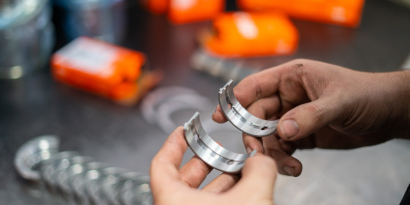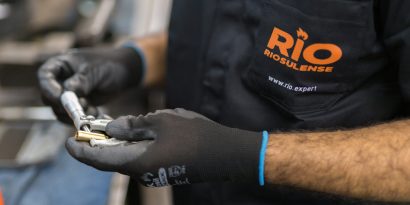Vehicle stopped on the shoulder, hood raised and car engine overheating. We’ve all seen this scene or even experienced it firsthand, isn’t that right? Despite being a fairly common problem, the fact is that engine overheating is still a source of headache for many drivers and mechanics worldwide.
And let’s face it, for someone who travels a lot, the prospect of having to deal with the car engine overheating out of nowhere, unannounced and in the middle of the highway is not pleasant at all. The problem is that the lack of periodic maintenance and essential care with the car can indeed cause abnormal heating of the components and therefore it is worth better understanding the possible causes. Come along with us!
Car engine overheating: explaining to the workshop’s customers
Driving — or liking to drive — does mean anyone has to understand everything about engines. Therefore, although some issues are very obvious to Experts and repairers, it is important to know how to explain these situations to the ordinary driver. Generally, this is the case of those who come across the engine of the car overheating.
This driver probably already knows that the car burns fuel gas to produce energy and move the car forward, as if it were a boiler on wheels, and that, therefore, there is a lot of heat inside it. But the customer looking for the workshop may not know that all this heat is usually not felt precisely because of the cooling system.
Here, it’s worth explaining to him that this system uses several components to control the temperature of the engine and other parts of the car and, if this isn’t not happening, it’s because something is wrong. The same goes for engine oil and other common accelerated wear items. And once this initial opinion is clarified, it’s time to dive into the official diagnosis! Let’s go!
Checking the main components
When overheating in the engine occurs, it can bring other worse damage to some components, or even start a fire. Therefore, it is important to understand why this occurs, what are some indications to keep an eye on, how to avoid the problem and, in particular, how the driver should act when in this situation. So note this down:
Check the lubricating oil
If the customer arrived at the workshop with the car engine overheating, your first question should be about the periodicity of the oil change. Remember that the car’s oil has a useful life and, when this period ends, it tends to lose its viscosity, in addition to accumulating much more dirt than recommended. Because of this, the oil loses its lubricating power and causes engine parts to touch each other directly.
We are talking about dangerous friction, metal against metal, which greatly increases the temperature of the car, in addition to causing a huge wear on the engine itself. The solution in this case is to remove all the old oil (even if you need to clean the engine sludge) and replace it with a new one. The choice between semi-synthetic or synthetic oil will depend on your car’s manual, but the synthetic option is usually better.
Attention with the cooling system
On the other hand, if the oil has been changed at the correct times, the problem may be in the cooling system — here, the causes may be varied. A water leak at some point in the system, for example, or the use of tap water within it are some of the most common problems.
In fact, many drivers do not even know this, but using tap water in the cooling tank is dangerous! This is because this water is treated with chlorine, a substance that accelerates the wear of the moving parts of the head, raising the engine temperature.
Thermostatic valve needs to be tested
Another item that the mechanic should check is the thermostatic valve. It’s worth remembering that under normal conditions, the car engine operates at temperatures close to 90°C. When this mark is exceeded, it is this valve that allows the passage of cold water coming from the radiator in the circuit, lowering the engine temperature.
If, by chance, this component locks in the closed position, there will be no cooling during high engine temperatures, causing overheating. So, check carefully and perform an immediate replacement if necessary!
Keep an eye out for water pump defects
There isn’t much of a secret here: the pump, present in any engine, is responsible for pulling the coolant from the reservoir, allowing it to circulate through the system and the engine components. Therefore, a failure or non-functioning of this item is already sufficient to prevent the control of the temperature in the vehicle.
The repairer already knows that it is common for this pump to simply stop working completely or start operating at reduced power, especially in those vehicles whose periodic maintenance is neglected. Therefore, verifying the performance of this system should also be among the priorities when a customer with the engine of the car overheating arrives at the workshop!
And remember: always reinforce the importance of periodic inspections
Truth be told, car overhaul is one of the best actions for drivers who want to take care of their investment and, of course, avoid the car engine overheating. In addition, it is a practice that helps in maintaining the average value of the vehicle, indicates maintenance and safety procedures crucial to users and allows the professional who performs it to monitor the entire history of changes made.
As such, the mechanic must always reinforce the importance of preventive maintenance and revisions, keeping the client updated and making himself available to resolve any doubts. To do so, a good tip is to keep records of all visits, exchanges and repairs that your customers request. Thus, it is easier to access the “records” of each client and streamline the diagnoses.
Oh, and don’t forget that the best way not to take unnecessary risks is to be sure of the origin of the parts you are buying to replenish the stock of your mechanical workshop. Therefore, ensure the quality of the inspection and customer satisfaction with RIO parts! Access our website, discover our portfolio and contact our team!





